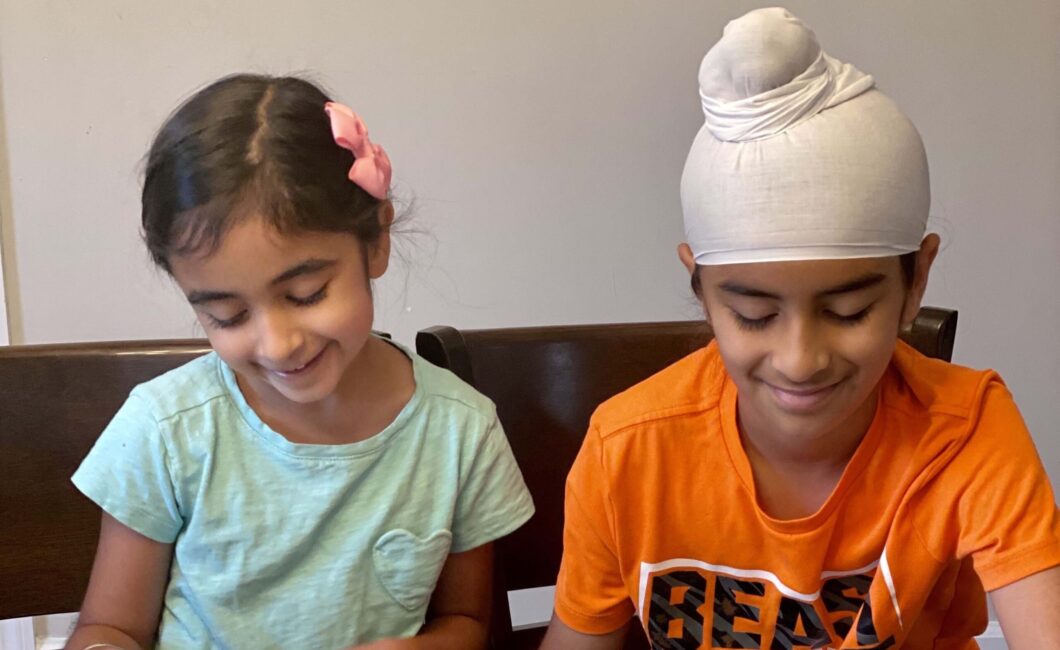An estimated 67% of Sikh American boys who wear turbans have experienced school bullying, including verbal intimidation, physical assaults, social harassment, and cyberbullying, reports the Sikh Coalition.
In the US population at large, 1 out of five children — 20% — experience some type of bullying, notes the organization Do Something. Bullying leads to truancy, with victims often skipping school to avoid their attackers. Students who are frequently bullied score lower in reading, mathematics, and science than their peers who reported that they were never or rarely bullied, reports Do Something.
“Sikhs have a very distinct external identity. They are recognized by their unshorn hair that they cover with a turban. Folks may not always understand why they look different,” said Dr. Rucha Kaur, community development director at the Sikh Coalition. “Folks don’t know why Sikhs don’t cut their hair or why Sikhs cover their head. And we believe that ignorance basically leads to folks feeling uncomfortable and then targeting young Sikh youth,” she told EMS in an interview, excerpted below.

EMS: Dr. Kaur, could you please explain why it is important for Sikh boys to wear the patka, which identifies them as Sikhs?
Rucha Kaur: So within the Sikh faith, unshorn, uncut hair is one of the five articles of faith that Sikhs keep. That is part of the identity of the Sikh faith; that is what makes our identity. Covering the head or covering your hair is mandatory in the Sikh faith.
But it’s a personal journey and a personal decision for boys to wear patkas. And I would imagine for Sikh youth, many are navigating this journey of faith on their own. They’re finding their identity, they’re finding themselves within the community into which they’re born, but also finding themselves on this journey to find their own sovereign relationship with God.
EMS: Sikh Americans, mistaken for Muslims, were the first post 9/11 victims of hate crimes. Balbir Singh Sodhi, a gas station attendant in Mesa, Arizona was killed Sept. 15, 2001 by Frank Silva Roque, who told his friends that he was going to go out and, I quote him, ‘kill some towel heads.’ Are you concerned — given the anti-Muslim environment that we’re facing now amid the Israeli-Palestinian conflict — that there will be a fresh wave of attacks against Sikhs overall?
RK: As a community, we have a long history of standing up for other communities that face injustice. We’re not going to throw our brothers and sisters that follow a different faith under the bus.
Regardless of what’s going on, we stand with those who face violence. No community should be subject to violence.
But are there concerns about Sikhs facing harassment and discrimination? Yes. FBI statistics for 2022 show Sikhs are the second most targeted group in the nation for religiously motivated hate crime incidents.
The Sikh community, unfortunately, continues to face violence at a very high rate.
EMS: The Sikh Coalition has released several advisories and initiatives aiming to combat school bullying. Could you discuss some of those initiatives?
RK: Creating safe learning environments for Sikh students is an organizational priority for the Sikh Coalition.
We provide free and accurate resources to educators and parents and legal assistance where there are extreme bullying cases. Also, we facilitate and deliver Sikh awareness presentations in schools, to teachers, to students, administrators, and different audiences. And then we continue to advocate for diverse and inclusive education and classroom environments.
One of the ways that we do that is to advocate for the inclusion of Sikhism in the social studies standards of a state. So this year, since December 2022, we’ve added Mississippi, Utah, Virginia, Washington, DC, and Connecticut among the list of states. So that makes it 18 states and Washington, DC that now have Sikhism included in the state standards.
We monitor state standards in all 50 states to find ways that we can advocate for inclusive education nationwide. Our team continues to advocate for legislation that creates more inclusive classrooms.
EMS: Is there legislation in the pipeline, both at the state and federal level?
RK: Most recently, we supported legislation in California which requires the state’s Instructional Quality Commission to consider for inclusion the contributions made by AANHPI communities. At the federal level, we’ve supported the All Students Count Act of 2023. The act helps to ensure that diverse Asian American and Native Hawaiian Pacific Islander student groups are accounted for and supported by K -12 education systems to succeed.
We’ve really come to understand that there is really this gap between the lived experiences of Sikh kids and what folks understand their experiences to be. That’s why we’ve invested so much time into having data which drives policy, which really supports the work that we’re doing in terms of addressing bullying for Sikh youth.
School being the defining period in our lives that it is, I think it’s really important that young Sikh voices are heard, that we are sharing their experiences, and that we are informing the policies that are shaping the experiences of these generations.
EMS’ Stop The Hate initiative is made possible with funding from the California State Library (CSL) in partnership with the California Commission on Asian and Pacific Islander American Affairs (CAPIAA). The views expressed on this website and other materials produced by EMS do not necessarily reflect the official policies of the CSL, CAPIAA or the California government. To report a hate incident or hate crime and get support, go to CA vs Hate.





